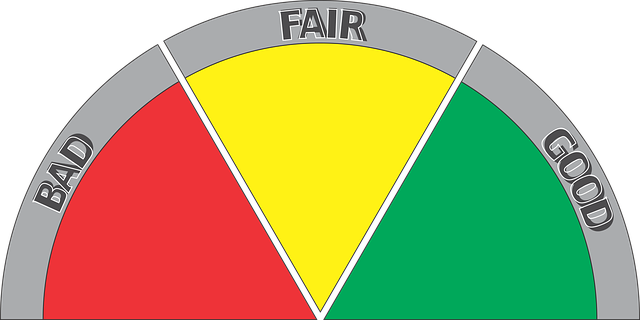
The University of Michigan is an excellent school, with top graduate programs in a variety of fields. But to get into UM, you’ll need to have an all-around impressive application, with strong GRE scores and a great undergraduate GPA.
What is the University of Michigan GRE score requirement? And what GPA do you need for admission? In this article, we’ll go over what kind of school Michigan is and how competitive it is for aspiring grad students. We’ll look specifically at the average Michigan GRE scores for various grad programs before concluding with a few tips on how you can estimate your chances of admission to the program you’re applying to.
Feature Image: VasenkaPhotography/Flickr
What Kind of School Is UM?
Widely considered one of the best public universities in the US, the University of Michigan, or UM/U-M (pronounced “U of M”), was founded in 1817 and has a total enrollment of about 46,000 students (both undergraduates and graduate/professional students).
The main UM campus is located in Ann Arbor, which lies approximately 45 minutes outside of Detroit and is consistently ranked among the best college towns.
UM is home to several prestigious graduate programs in the Stephen M. Ross School of Business, Law School, and Medical School. In addition, the University of Michigan Hospitals and Health Centers is regarded as one of the top hospitals in the nation.
Quick side note: we've created the world's leading online GRE prep program that adapts to you and your strengths and weaknesses. Not sure what to study? Confused by how to improve your score? We give you minute by minute guide.
You don't NEED a prep program to get a great GRE score. But we believe PrepScholar is the best GRE prep program available right now, especially if you find it hard to organize your study schedule and don't know what to study.
Click here to learn how you can improve your GRE score by 7 points, guaranteed.
Michigan GRE Scores: How Competitive Is UM?
The University of Michigan is fairly competitive for graduate applicants.
The average GRE scores for UM graduate programs range from about 155 to 165 for Verbal and Quant, or the top 5-40%. (In general, Quant score averages will be higher for science- and math-based programs, while Verbal averages will be higher for arts and humanities programs.)
The Analytical Writing (AW) score is typically considered the least important GRE score, with most UM applicants scoring in the range of 4.0-4.5.
As is the case with many grad schools, GRE score expectations can vary significantly for UM grad programs. For example, you can’t expect to need the same scores for a PhD in engineering program as you would need for a Master of Higher Education program.
Now that we’ve gone over the general range of average GRE scores at Michigan, it’s time for us look at how you can find the University of Michigan GRE score requirement for the particular program you’re applying to.

What’s a Good GRE Score for UM?
Here, we give you an overview of the average GRE scores for several different grad programs at UM. We’ll go over what each program’s US News ranking is (if applicable), whether the program requires GRE scores, and what the program’s average (undergrad) GPA is for admitted applicants.
Generally speaking, GRE score information will be presented in one of three ways for a grad program:
- Required scores: These are the minimum scores you would need to qualify for admission to a grad program. If you score lower than this, you will most likely be automatically rejected (though there are occasionally some exceptions).
- Recommended scores: These are the ideal scores to aim for when applying to a particular program. Hitting or surpassing a recommended GRE score will make you a competitive applicant and increase your odds of getting in.
- Average scores: These are the average scores of admitted applicants, meaning that most who are admitted to the program score around this level. Aiming slightly higher than the average for your program will help you stand out from other applicants.
The UM grad programs below are arranged in alphabetical order (by program name, not degree type) and refer to both master’s and doctoral programs unless otherwise stated.
As you’ll see in just a moment, the majority of UM GRE scores are averages; however, some programs offer recommended or minimum scores instead. Similarly, most GPAs reported by UM grad programs are averages, though you’ll also come across some recommended and minimum GPAs (as noted in the chart).
| Program | US News Ranking | GRE Required? | Avg. GRE Scores | Avg. GPA |
| Anthropology PhD | — | Recommended, but not required | Recommended V: 160 Q: 160 AW: 5.0 |
Minimum 3.30/4.00 |
| Master of Applied Economics (MAE) | 12 (Best Economics Schools) | Yes | V: 152 Q: 166 |
3.47/4.00 |
| Chemical Engineering PhD | 11 (Best Chemical Engineering Programs) | Yes | V: 155 Q: 165 AW: 4.35 |
3.60/4.00 |
| Civil and Environmental Engineering | 7 (Best Civil Engineering Programs) | Yes, for PhD and MSE applicants | PhD V: 156 Q: 165 AW: 4.0 Master’s V: 153 Q: 165 AW: 3.5 |
PhD: 3.60/4.00
Master’s: 3.40/4.00 |
| Ecology and Evolutionary Biology | 6 (Best Ecology & Evolutionary Biology Programs) | Yes | Q: 158 | 3.54/4.00 |
| Health Management and Policy | 5 (Best Health Policy & Management Programs) | GRE or MCAT (depending on program) | Median* V: 81.5th %ile Q: 73.5th %ile |
Median 3.53/4.00 |
| Master of Higher Education | 1 (Best Higher Education Administration Programs) | Yes | V: 157 Q: 152 AW: 4.5 |
Recommended 3.00/4.00 |
| History PhD | 6 (Best History Programs) | Yes | V: 163-169 AW: 5.5-6.0 |
3.71/4.00 |
| Industrial and Operations Engineering MS/MSE | 2 (Best Industrial Engineering Programs) | Yes | Recommended V: 155 Q: 160 |
Minimum 3.25/4.00 |
| Information | 1 (Best Information Systems Programs) | Yes, for PhD applicants only | Unavailable | 3.50/4.00 |
| Kinesiology | — | Yes | Recommended V: 155 Q: 160 AW: 4.5 |
Recommended 3.40/4.00 |
| Mathematics | 12 (Best Mathematics Programs) | Yes | Median V: 163 Q: 169.5 AW: 4.5 |
Unavailable |
| Mechanical Engineering | 5 (Best Mechanical Engineering Programs) | Yes | Recommended V: 80-90th %ile Q: 80-90th %ile |
Recommended 3.70/4.00 |
| Naval Architecture and Marine Engineering | — | Yes | Minimum V: 150 Q: 160 AW: 4.0 |
Minimum 2.50/4.00 |
| Physics PhD | 13 (Best Physics Programs) | Yes | Unavailable | Unavailable |
| Psychology PhD | 3 (Best Psychology Schools) | Yes | V: 160 Q: 159 AW: 4.57 |
Unavailable |
| Public Policy master’s programs | 2 (Public Policy Analysis Programs) | Yes, for MPP applicants only | V: 75th %ile Q: 75th %ile |
Median 3.40/4.00 |
| Robotics | — | Yes | V: 155 Q: 167 AW: 4.0 |
PhD: 3.77/4.00
Master’s: 3.75/4.00 |
| Master of Supply Chain Management (MSCM) | — | GRE or GMAT | Q: 155+ | 3.30/4.00 |
Source: umich.edu
*Verbal and Quant percentiles listed here are for both the GRE and GMAT together.
What Are Your Chances of Admission to UM?
Your chances of getting into the University of Michigan can vary a lot depending on different factors. Before we go over exactly what these factors are, though, let’s take a quick look at some important estimates.
The following GRE scores and GPA should make you a very competitive applicant for most grad programs at the University of Michigan:
- If Verbal is your most important GRE section, around 163 on Verbal, 158 on Quant, and 4.5+ on AW: Most reading- and writing-based programs at UM (especially doctoral programs) want Verbal scores in the 160s but don’t care as much about Quant scores, so aim for around the upper 150s on Quant.
- If Quant is your most important section, around 165 on Quant, 158 on Verbal, and 4.5 on AW: For math-and science-based programs at UM, getting a high Quant score is vital for admission. Since you don’t need to get super high Verbal and AW scores, it’s best to aim for the high 150s on Verbal and around 4.5 on AW.
- A 3.6/4.0 GPA or higher: You’ll have a better chance of admission to Michigan if you had between an A- and B+ average in undergrad. Of course, an even higher GPA will certainly make your application stand out more. Don’t forget that the rigor and relevance of your undergrad coursework is important, too, so even if you didn’t have a super high GPA, the difficulty of the classes you took could work in your favor.
Although these GRE scores and GPA will generally make you a strong applicant for many grad programs at UM, there are a couple of caveats to be aware of. First, GRE score and GPA expectations can vary significantly among programs at UM, so you could very well get into a program with scores and a GPA lower than what we describe above. Secondly, since the University of Michigan is pretty selective, there’s no way to guarantee that getting a high GRE score or having a perfect GPA will get you admitted to a grad program.
Now, let’s go over the most important factors that can impact your chances of getting into UM as a grad student.

#1: Is There a Minimum Required GRE Score or GPA?
One big factor you’ll want to consider is whether the UM program you’re applying to has a minimum GRE score or GPA requirement. As the chart above indicates, most programs at the University of Michigan do not maintain minimum required GRE scores for admission.
That said, if a program does require a minimum GRE score, you’ll need to get at least this score to qualify for admission. If you don’t get this minimum score, your application will most likely be automatically disqualified.
If the program you’re applying to recommends a certain GRE score (but doesn’t require it), you’ll still want to get at least this score. While getting a lower score than what’s recommended doesn’t necessarily mean you won’t be admitted, it does increase your likelihood of getting rejected.
Finally, UM grad programs don’t typically require a minimum GPA for admission; however, you’ll still need a fairly high GPA to be on par with other applicants—as mentioned, around a 3.6/4.0. If your GPA isn’t that high, you can’t do much to change it, but you can focus on strengthening other parts of your application.
#2: How Does Your GRE Score Compare to the Average?
What GRE scores do you need to get into UM? By far the simplest way to figure this out is to find the average GRE scores for your particular program.
In general, you’ll want to aim for (at least) the average GRE score for your program. This will make you as good as previously admitted applicants.
For example, if you were applying to UM’s Chemical Engineering PhD program, you’d want to get at least 155 on Verbal, 165 on Quant, and 4.5 on AW. Getting these scores ensures you’ll be on par with other applicants. If you score higher than these averages—say, 160 on Verbal and 168 on Quant—you’ll have an even higher chance of admission.
Many UM grad programs report their average GRE scores online. If your particular program doesn’t offer any GRE score information online or you’re having trouble finding it, you can read our guide to what a good GRE score is to help you estimate the score you’ll need to be a competitive applicant.
#3: How Strong Is the Rest of Your Application?
Other factors besides GRE scores and GPA can also influence your chances of admission to the University of Michigan. Here are some of the most important factors:
- How compelling, well written, and interesting your statement of purpose is
- How complimentary your letters of recommendation are
- How much research, work, and/or extracurricular experience you have in the field
- How well your research interests align with the expertise of the faculty
No matter how high your GRE scores or undergrad GPA might be, you’ll still want to make each part of your grad school application as strong as possible.
In the end, one major mistake, such as a poorly written statement or a negative letter of recommendation, could get you rejected from a grad program, so spend lots of time making your UM application as strong as it can be!
Want to improve your GRE score by 7 points? We have the industry's leading GRE prep program. Built by world-class instructors with 99th percentile GRE scores, the program learns your strengths and weaknesses through machine learning data science, then customizes your prep program to you so you get the most effective prep possible.
Try our 5-day full access trial for free:
What’s Next?
I’m willing to bet you’re applying to more schools than just the University of Michigan. Get the rundown of what GRE scores you’ll need for Harvard, USC, and MIT.
What exactly is a good GRE score, generally speaking? Our in-depth guide goes over how to use percentiles and the programs you’re interested in to set a GRE goal score.
Wondering what your chances are of getting into grad school? Learn all about what grad schools expect in terms of test scores, GPAs, and application materials as a whole.
Ready to improve your GRE score by 7 points?
We've written a eBook about the top 5 strategies you must be using to have a shot at improving your GRE score.
Download it for free now:

